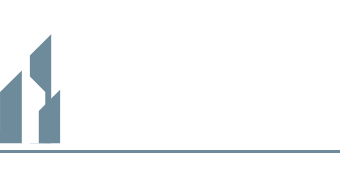The following op-ed first ran in The Vancouver Sun on July 16, 2020. It was co-written by:
- Chris Gardner, President, Independent Contractors and Businesses Association;
- Paul de Jong, President, Progressive Contractors Association of Canada;
- Chris Atchison, President, B.C. Construction Association;
- Fiona Famulak, President, Vancouver Regional Construction Association;
- Ryan Bruce, B.C. Manager, Government Relations, CLAC;
- Ken Baerg, Director of Labour Relations, Canada West Construction Union
It has been two years since Premier John Horgan announced that key public infrastructure would be built using his government’s Community Benefits Agreement (CBA), shutting out 85 per cent of British Columbia’s construction workforce from working on certain publicly funded projects.
 As we mark the unceremonious anniversary, the construction industry partners that responded to the premier’s announcement by launching a legal challenge of the CBA, will be in court fighting for the right to have the B.C. Supreme Court consider whether the transportation and infrastructure minister acted properly when she imposed the CBA on the industry.
As we mark the unceremonious anniversary, the construction industry partners that responded to the premier’s announcement by launching a legal challenge of the CBA, will be in court fighting for the right to have the B.C. Supreme Court consider whether the transportation and infrastructure minister acted properly when she imposed the CBA on the industry.
The legal challenge stalled last February when the court referred parts of our case to B.C.’s Labour Relations Board (LRB). On July 16, we will be asking the Court of Appeal to reverse that decision and return the entire case to the B.C. Supreme Court to be adjudicated on its merits.
Our case has been, and will continue to be, about the minister’s decision – her statutory discretion – to implement an unfair and discriminatory policy that infringes on the Charter rights of workers. We are not challenging the collective agreement embedded in the CBA or any other issue within the jurisdiction of the LRB.
The case against building public infrastructure using B.C.’s CBA is not solely a legal one.
For two years, we have warned about the cost implications of using this skewed version of a CBA, one that believes unionized labour is needed to create new opportunities for various under-represented groups when industry has been hiring and training those same groups for decades.
If the NDP government continues to impose its CBA on public infrastructure projects, construction costs will spiral upwards and, ultimately, leave government with four options: to build fewer projects; reduce the scope of projects; increase taxes to pay for the projects; or incur debt to build them. At the end of the day, B.C.’s taxpayers will bear the brunt.
The provincial government announced the Pattullo Bridge replacement, the Broadway Subway Line and multiple projects to widen the Trans Canada Highway from Kamloops to the Alberta border will all be built using labour supplied under the CBA.
Now, as the first CBA projects get underway, our predictions are becoming a sad reality for taxpayers and the men and women working in construction who are excluded from these projects. B.C.’s CBA is ratcheting up construction budgets for these projects and leading the provincial government to change the budget and/or scope of some projects to keep budgets in check.
Just look at the facts. The government itself estimates the CBA will add $100 million to the cost of the Pattullo Bridge. Meantime, the combined budget for the TransCanada Highway 1 widening projects along the Illecillewaet River, in Kicking Horse Canyon and near both Chase and Salmon Arm has increased by 30 per cent from $874.8 million to $1.13 billion. It begs the question: What do these cost increases signal for the $2.83-billion Broadway Subway Line?
How much of the increase is due to the CBA? Despite our requests for details, the provincial government has not released those numbers. What we do know, however, is that they created a new Crown Corporation – BC Infrastructure Benefits Inc. – at a cost of tens of millions of dollars to administer all CBA-projects.
Just as troubling, the B.C. government has quietly reduced the scope of some of the projects. When first announced, the four-laning projects near Chase and Salmon Arm both had three segments. Today, the project websites list only two segments for each community.
The outcome of all of this? B.C. taxpayers are paying more for less.
The need to abandon B.C.’s skewed CBA is more important than ever as we navigate COVID-19. We are regularly reminded by government and public health officials that we are all in this together, that we each have a role to play to stem the spread of the virus and contribute to the province’s economic recovery.
It stands to reason, therefore, that as we work to rebuild our economy, all workers should have a fair chance to work on government funded projects, not just those who are members of the 19 trades unions that are signatories to the government’s CBA. And British Columbia’s taxpayers should know they are getting the best value for their hard-earned tax dollars.
